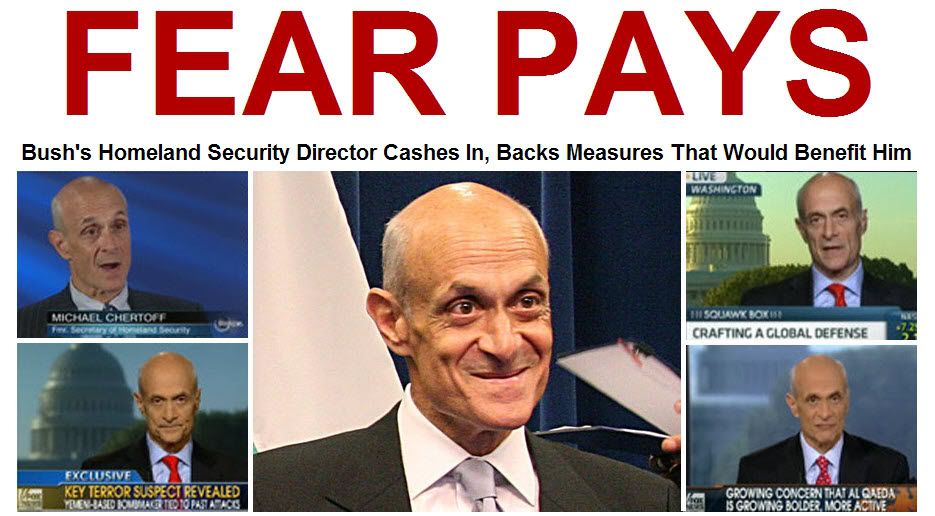
Fear Pays: Chertoff, Ex-Security Officials Slammed For Cashing In On Government Experience
First Posted: 11-23-10 06:16 PM | Updated: 11-23-10 09:45 PM
http://www.huffingtonpost.com/2010/11/23/fear_pays_chertoff_n_787711.htmlAfter last month's plot to send bombs from Yemen to the United States aboard a cargo plane, former U.S. Homeland Security chief Michael Chertoff's whiskerless visage was ubiquitous on cable news. Solemnly warning that the nation needed stronger security procedures, Chertoff patiently repeated his talking points on ABC News's "World News Tonight", "Fox and Friends", CNBC's "Squawk Box" and Bloomberg TV.
Almost unmentioned in these appearances: Chertoff has a lot to gain financially if some of these measures are adopted. Between his private consulting firm, The Chertoff Group, and seats on the boards of giant defense and security firms, he sits at the heart of the giant security nexus created in the wake of 9/11, in effect creating a shadow homeland security agency. Chertoff launched his firm just days after President Barack Obama took office, eventually recruiting at least 11 top officials from the Department of Homeland Security, as well as former CIA director General Michael Hayden and other top military brass and security officials.
(Chertoff's predecessor at DHS, Tom Ridge, has also parlayed his experience into a lucrative career. Since 2005, he has served on the board of Savi Technology, the primary technology provider for the Pentagon's wireless cargo-monitoring network, and he has served as a senior advisor to TechRadium, Inc., a Texas-based security technology company.)
Chertoff's clients have prospered in the last two years, largely through lucrative government contracts, and The Chertoff Group's assistance in navigating the complex federal procurement bureaucracy is in high demand. One example involves the company at the heart of the recent uproar over intrusive airport security procedures -- Rapiscan, which makes the so-called body scanners. Back in 2005, Chertoff was promoting the technology and Homeland Security placed the government's first order, buying five Rapiscan scanners.